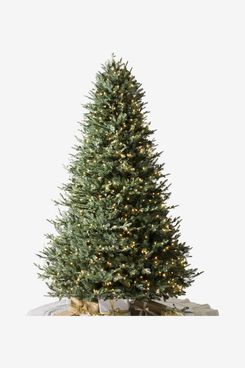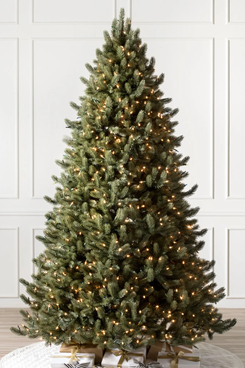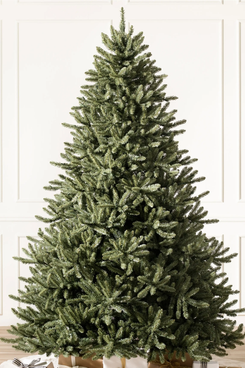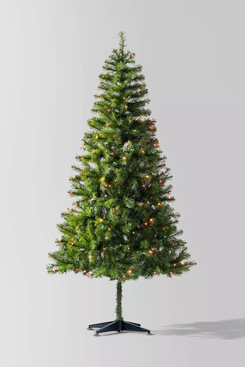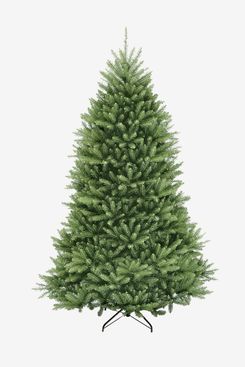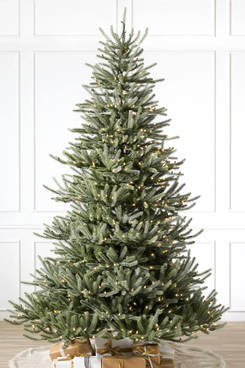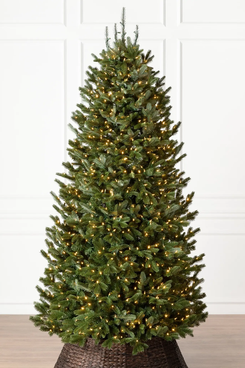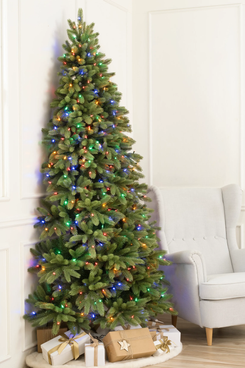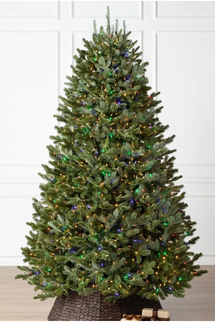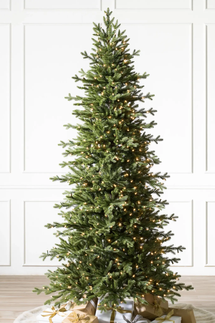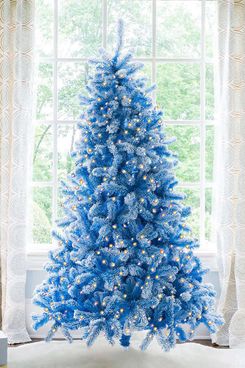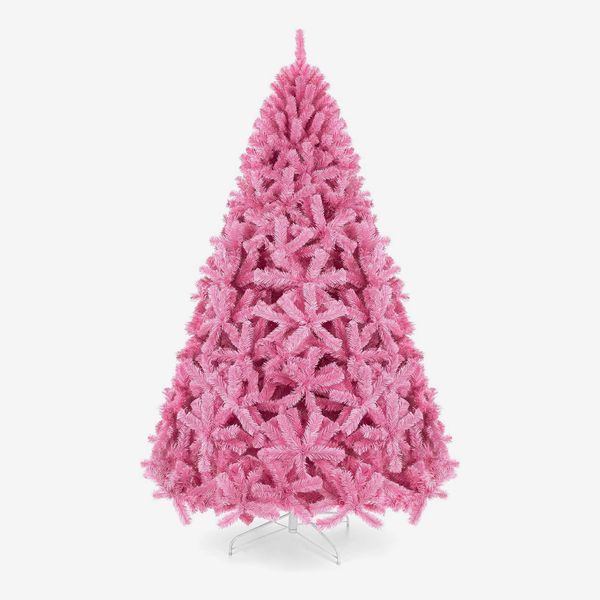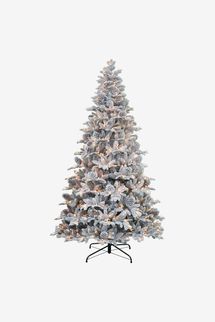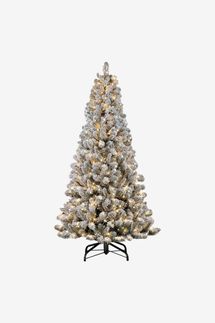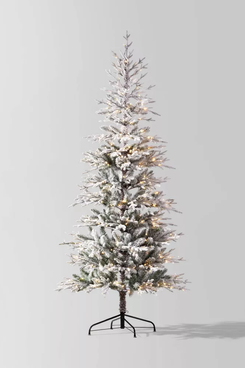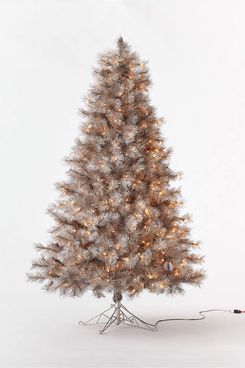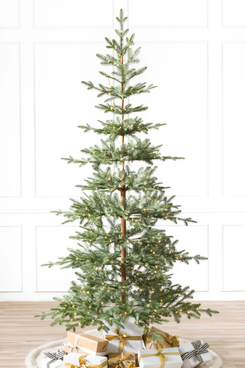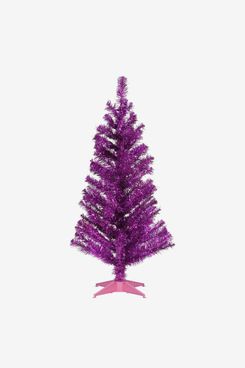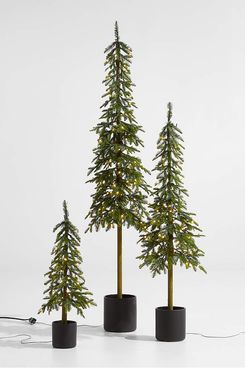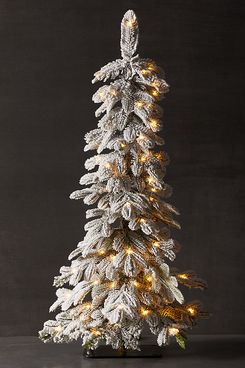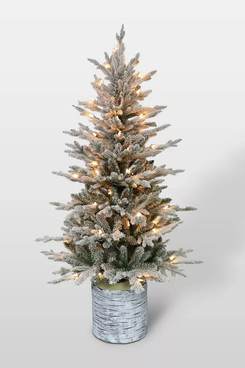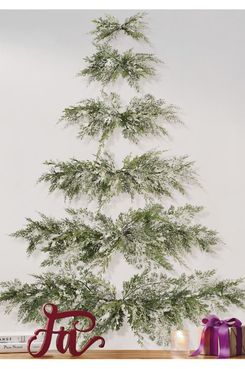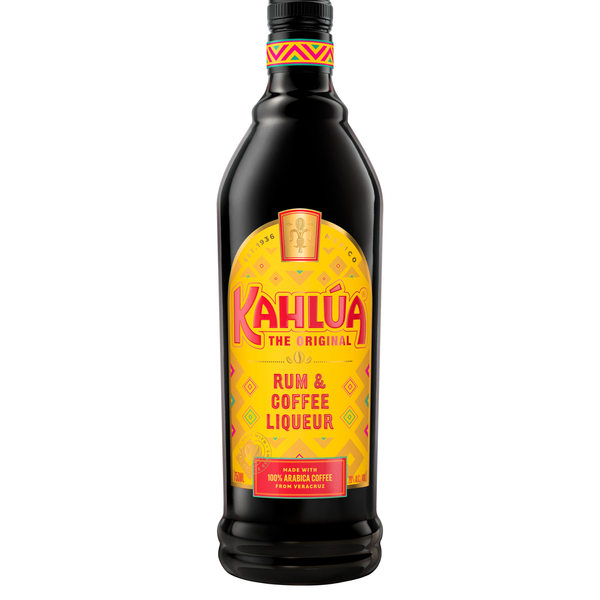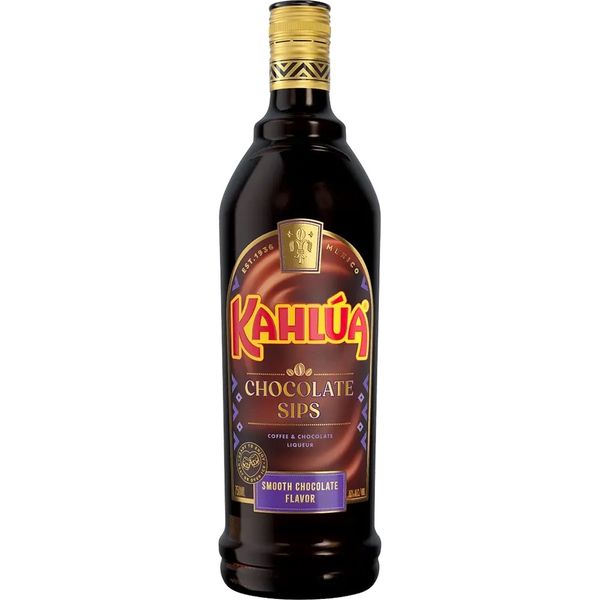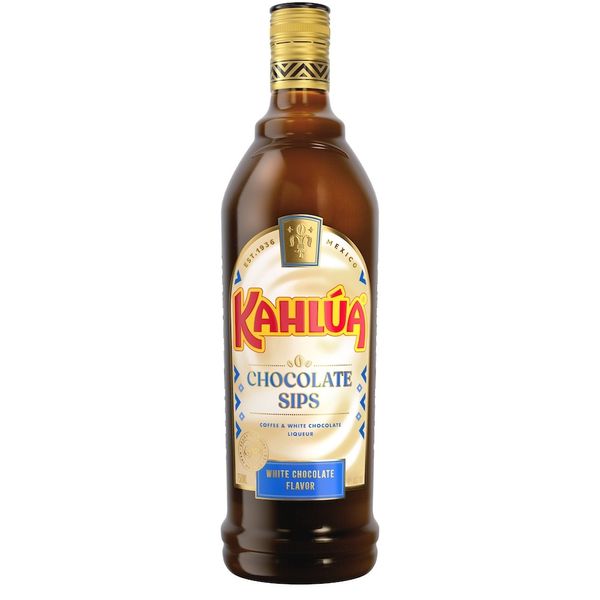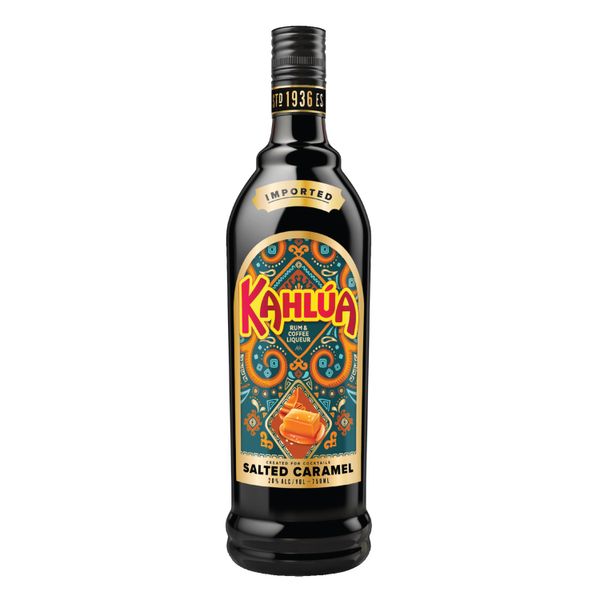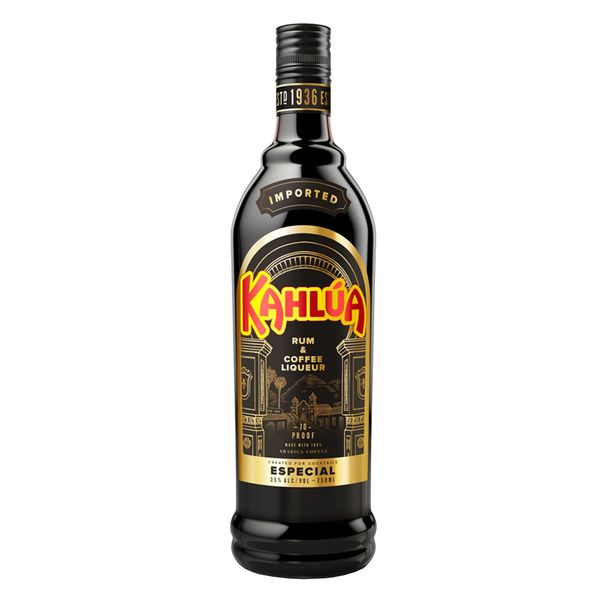
Let’s get the obvious out of the way: There’s probably no scent stick or can of room spray that will fully capture the spirit of a real Christmas tree. It’s a smell that immediately evokes images of gingerbread houses and peppermint candy canes. But that doesn’t mean having one is without its problems — from fallen needles and having to water it to figuring out the proper disposal procedures (or even dealing with allergies). That’s where the right artificial Christmas tree comes in.
With an artificial tree, you still get all the holly-jolly joyfulness of a real one without the needle-dropping expiration date. You might even save yourself some bucks for years to come (as long as you have somewhere to store it in the offseason). If it’s your first time going faux and you’re wondering where to start, you’ve come to the right place. I asked set decorators, professional organizers, interior designers, and all-around Christmas enthusiasts about theirs. You’ll find everything from a tree that starred in a Hallmark movie to another that’s a “profane pink number.” And if you’re looking for Christmas-tree decorations, we have guides to the best tree toppers and tree skirts, too.
Update on November 23, 2024: Updated prices and checked stock for all products.
Best overall artificial Christmas tree
In the artificial-tree-scape, Balsam Hill reigns supreme. Interior designers, set decorators, and Christmas enthusiasts all sang the brand’s praises, largely because you might mistake a Balsam Hill tree for the real deal. “Some trees just look like plastic,” explains Erin Swift, founder of holiday-decorating firm Holiday Workroom. And if you’re going for real faux, “the answer is simple: Balsam Hill. Always Balsam Hill,” she tells me.
You should know that Balsam Hill trees are expensive — like, four-figures expensive. “Buy one on Black Friday” was an oft-repeated piece of advice I heard, and you can sometimes find a few marked down at Nordstrom and on Amazon, too. The final price tag at checkout will depend on the tree’s height — from 5.5 feet up to 12 feet — and the lights you choose (if you’re not sure where to start, BH offers a helpful bulb guide). The cost includes a protective storage bag — so you don’t have to shove your investment back into a cardboard box after Christmas — as well as gloves to wear while you’re fluffing the branches and, if you chose a pre-lit tree, a few spare bulbs. It’s worth noting that BH sells sampler kits of the different trees it sells, and the cost of a kit is credited toward your purchase of a full-size tree. Plus, every tree comes with a three-year warranty.
If you’re going to buy only one fake tree, it should be Balsam Hill’s signature Balsam Fir. This tree has the backing of three Christmas-decoration connoisseurs: Swift, professional organizer Naeemah Ford Goldson, and interior designer Betsy Burnham. It’s modeled after the balsam firs in Maine with needles and branches reminiscent of the ones you’d see on a real evergreen. And as far as lights go, Burnham — a self-proclaimed perfectionist when it comes to placement — says they’re “wound around the branches all the way toward the trunk,” which gives some nice ambience. She decorates her tree with all sorts of ornaments, including “the tin boats my son used to love as a little kid, the carved family of porcupines my daughter always hung together, and the mini–Eiffel Tower that’s always too heavy to sit right, but we use it anyway.”
Other traditional artificial Christmas trees
The Vermont White Spruce is another Balsam Hill bestseller. It’s meant to resemble the true white spruces of New England. Strategist senior editor Jen Trolio, who was sent a sampler kit, says the branches on the Vermont White Spruce are ever-so-slightly darker with pointier needle tips than those on the Balsam Fir’s. Joanna Douglas, the former director of branded content at Vox Media, says guests always compliment hers for how real it looks. That was especially important to her, as someone who was formerly against going faux. Douglas praises the branches’ bendability, allowing her to arrange and rearrange them as needed. Hers is decorated with photos of her cats depicted as angels — they were once naughty, nibbling on the needles and sipping on trunk water of her real trees, but are now “completely disinterested” in messing with her fake.
Balsam Hill’s Classic Blue Spruce was featured on the set of Hallmark’s One Royal Holiday. Fittingly, the movie’s set decorator, Christi Whiteley, calls it “majestic.” Another fan is Lauren Ragan, director of ad operations at Vox Media. The real-looking needles on this tree take a while to arrange the first few times — each branch has needles arranged in a sort of fan shape, and they need to be pushed out and down — “but after some time, it gets easier and easier, my husband tells me,” Ragan says. After pulling the trigger on the “onetime investment” four Christmases ago, she hasn’t looked back. Ragan goes for a “nice dressing” of different-colored ornaments on the tree, a compromise with her husband. Her in-laws, who are big on Christmas, have theirs “doused in ornaments,” a tradition her husband embraced before.
Target’s in-house holiday line, Wondershop, is full of cheap trees. Because it’s a seasonal shop (like its Halloween-themed Hyde & Eek), stock moves fast — and might not come back for the next holiday season. Thankfully, this Alberta Spruce has, and now comes in different heights: three, six and a half, or seven feet. In the old apartment of e-commerce consultant (and my former boss) Brittany Nims, this tree stood between her now-husband’s desk and the entertainment console in their living room, which was very small (even by Brooklyn standards). Nims packed on the sparkle while decorating it, adding mini disco balls, a glittery star topper, and sequined, faux-fur-trimmed skirt. “There’s something about a glowing Christmas tree that’s just so cheerful,” she says.
Before getting this Dunhill Fir (designed by decades-old National Tree Company), Stefania Orrù, director of production at Eater, owned fakes that were best described as “Charlie Brown–y.” Her hunt for her first full-size tree included lots of review reading and Googling — and it was a YouTube video that persuaded her to get this tree. “It was a steal,” considering how costly an artificial tree can be and especially with current inflation levels, Orrù says. The tree is painless to set up and comes unlit — something common when buying a cheaper fake, as adding lights yourself will require buying them separately and spending time putting them on. But Orrù appreciates the flexibility of being able to swap styles of lights this way. She even went with a “disco junk food” theme one year — featuring ornaments in the shape of a hot dog, pizza, and stick of butter. She notes that the branches are “pretty pliable in terms of positioning.”
If you want a realistic tree that nonetheless looks a bit frosty — and isn’t flocked — Trolio recommends Balsam Hill’s Sanibel Spruce. “It’s one of my absolute favorites of the handful of Balsam Hill trees I’ve acutally seen in person,” she says. Plus it “very much matches the product photo on the site,” which isn’t always the case when it comes to artificial trees. The tips of the needles on this tree are a bit lighter in color, and the branch tips are especially lifelike. “One of the more obvious giveaways that makes a tree look fake is how the needles look,” explains professional organizer Britnee Tanner. The Sanibel Spruce resembles the evergreen in her yard instead of the “loose, sparse, and floppy” look of other fakes. Trolio agrees: “There are a good number of tips per branch” with longer ends that allow for “excellent ornament distribution.” (An important note: It comes pre-fluffed with memory-wired arms that fan into place, according to the company, though Trolio notes that you should still plan to do a good bit of finishing on your own.) Even after a few Christmases, Tanner still considers it to be her best buy for the holidays.
This is the narrow version of Balsam Hill’s famed Fraser Fir (46 inches wide versus 60 inches wide for a 7.5-foot-tall tree). Selina van den Brink, a freelance set decorator, used this tree for the Oscar-winning film Green Book. She needed something that would last for the entire weekslong shoot and “wouldn’t drop needles while being decorated,” settling on Balsam Hill’s Fraser fir after doing a quick poll of fellow set decorators. “It just has all the characteristics of a real tree,” she says. “It’s not too perfect — with an organic quality to the manufactured branches.” It was featured in a traditional tree-decorating scene, with star Viggo Mortensen coming home for Christmas “just in time to celebrate with his family,” so “the tree was a very big deal,” van den Brink explains.
Before trying Balsam Hill’s Fifth Avenue Flatback last Christmas, I’d only ever owned the real deal. The Fifth Avenue Flatback did not disappoint: It’s convincing enough that I didn’t even miss the fresh-pine smell of a real tree. But the biggest selling point of the Flatback is that, well, the back is flat. You’re still getting all of the fullness of a real tree in the front, but this tree can stand flush against a wall. It’s ideal for small spaces like mine, where I can only fit a tree between my staircase and the couch.
I also loved that the Flatback assembled (and disassembled) quickly. Because I didn’t have to think about a full 360-degree view, I could cut down on some decorating time, too. Just note: You’ll want to measure the bottom carefully for a tree skirt — I used a standard-size 48-inch one on mine, and had to tuck it around the trunk rather awkwardly. But I’m planning on getting something better-fitting this coming Christmas.
Most artificial trees break down so you can store them in a box. The Flip Trees from Balsam Hill are designed to “flip” open on a rolling stand for even easier assembly. (See a video of how it works here.) It’s a feature that prop stylist Andrea Greco considers a “game changer.” (It also helps her rationalize the trees’ price tags.) Greco has owned the Red Spruce for over a decade and also uses them on sets — for one photo op, she covered the tree in hundreds of handmade gardenias dusted with glitter and garlands of paper leaves. She likes the idea of decorating it with a New York City theme, complete with Chrysler Building and Statue of Liberty, vintage subway tokens, and a giant rat.
More nontraditional artificial Christmas trees
Another big name to know in faux is King of Christmas. Its traditional and nontraditional trees are similar to Balsam Hill’s (with cheaper starting prices). Trolio had the chance to try out the King of Christmas’s Duchess (in a now sold-out flocked Barbie pink, but the blue version is still available). The color makes an obvious statement, and the settings on the dimmable light bulbs are another show in themselves — including one that Trolio describes as “very ‘dance party’ flashy.” Because of the flocking on the branches, the tree looks much fuller. “Think of thickening mascara on eyelashes,” Trolio says. Beware that upon opening, the tree has a slightly musty smell and sheds during assembly. “It wasn’t terrible, but there was a decent dusting,” she warns. Fortunately, it was easy to clean up any fallen flocking with a vacuum. Like Balsam Hill, King of Christmas includes a storage bag and two-year warranty on every tree.
King of Christmas also makes a tabletop tree with lights that remind me of little stars (I kept one on my fireplace mantel all of last December). But inventory is low, so don’t dillydally.
Once a traditionalist, Strategist contributor Ivy Pochoda “left the fake spruce and tinsel trees behind” for what she describes as a “profane pink number” back in 2021. Even though the tree seemed frivolous at first, it’s well made — sturdy and plush and “filled the living room with shiny pink delight,” she says. Fluffed to its fullest, it “swallows lights and ornaments” — Pochoda decorates the tree with string lights, silver garland, and vintage ornaments from Christopher Radko and Kurt Adler alongside boxed wine and disco-mirror-ball ornaments. She’s since become known as the “person with the pink tree” in her neighborhood. “People paused as they passed my window. They went out of their way to take a look,” Pochoda says.
[Editor’s note: This tree is currently out of stock, but you can sign up for restock notifications on the product page.]
Michaels’ Vermont Pines are a favorite of the professionals — this 7.5-footer made an appearance in our guide to decorations movie-set decorators use. The tree has a decidedly “winter wonderland” look and is similar to one recommended to us by prop production designer Tom Lisowski. Lisowski usually depends on live Fraser firs from Christmas-tree farms when working on interior sets but uses flocked faux styles — which are made to seem as if they’re covered in snow — for outdoor scenes to create an “amazing Christmas feel.” Meredith Goforth, founder of home-organizing firm House of Prim, turned us on to the (slightly cheaper) 6.5-foot version that she puts in her kids’ playroom. She likes that it’s “obviously faux” with the flocking acting as a canvas for different color palettes — in one instance, she dressed it up with felt animals and snowflakes. (If you want a lighter flocked effect, brush Elmer’s glue on an unflocked tree and sprinkle some flour on top, according to set decorator Samantha Twist.)
“If you don’t mind a little glitter on your presents, it’s a fun tree,” says set designer Karin Olsen. Olsen has displayed this tree for a few Christmases in a row now. She swears that the “more you fluff, the fuller” the flocked, glittered branches will seem. The 250 bulbs on the pre-lit tree accent the shimmer. After styling so many Christmas shoots, Olsen likes her faux trees to be pre-lit, as “who wants to fight putting lights on a fake tree only for it to end up looking like you were arm wrestling a cat?” Though it does shed some glitter during setup and takedown — have your vacuum at the ready — the dropped sparkles won’t leave the tree looking patchy. “The thing with glitter is that it never really goes away,” Olsen says. And she suggests getting a storage bag so you don’t have to shove it back into the original box.
[Editor’s note: This tree is currently out of stock. You can sign up to be emailed when it’s back on the product page.]
Once branded as “Champagne,” the color of this tree has since been rebranded as “Silver Pine,” which is more accurate to the “elegant pewter” shade Trolio describes it as having. Even while Trolio has looked at a lot of artificial Christmas trees in her time, she thinks it’s special —particularly since it’s a pine, not the usual fir or spruce. It’s unlike shinier “tinsel” trees on the market, too. The tree comes lit; just note that if you want to add extra lights, “it’ll be more of a project than slapping on any string from the hardware store,” says Trolio, adding that you’ll need to track down clear lights like these to match the ones that come strung on the tree.
This was the the first Balsam Hill tree Trolio bought for herself (after previously inheriting a hand-me-down in a different style). Though in the end “a fake is still a fake,” Trolio says she chose the “sparse-on-purpose, pre-lit” design specifically for displaying certain ornaments. “I have become a way too over-the-top-Christmas-ornament person. I own hundreds and can’t stop buying them,” she admits.
This Alpine Balsam Fir has a place in the corner of her dining room as a “theme tree” holding her collections of pickle and pretzel ornaments. Since the branches aren’t especially full, the wires for the lights are a bit more visible, so Trolio advises that you be extra thoughtful about what kinds of ornaments you’re hanging — and mindful about getting the right “drop.” (On the same note, she recommends using a tree skirt instead of a tree collar, as the branches don’t go very low on the trunk and a skirt does a better job of hiding the flat metal base.) As for assembly, the tree “goes together super-easily, and the light connectors are built into the sections of the trunk so you don’t have to plug them together separately,” she explains.
This miniature tinseled tree isn’t intended to be a dupe of a real Christmas tree, which is exactly why Trolio likes it. “It’s a shiny purple tree, after all,” she says of the “pink” one she owns, advising that the shade is much darker and more magenta in person. The tree comes in a rainbow of other hues as well, including white and turquoise. Trolio usually displays her three-foot tinsel tree in her daughters’ room, but thinks the style would be ideal for anyone with “a more kitschy aesthetic.” You can also get it in pre-lit four-foot and seven-foot versions.
Interior designer Liz Lipkin is eyeing these pre-lit, already-potted trees. Lipkin likes their “cartoonish” look, as “they’re not trying to fool anyone into thinking that they’re real.” She imagines grouping them together — they come in three-, five-, and seven-foot versions — like having a row of the smallest size, or pairing the tallest size with two in the medium size. These are modeled after trees seen on the slopes of the Alps — though there’s no faux snow topping them. (You can always try to DIY the effect.) Lipkin suggests clipping a few fake birds onto the branches or stringing through a cranberry garland.
“Since it doesn’t scream ‘holiday’ so much as ‘wintertime,’ I tend to keep mine out through winter to bring some cheer to my dark apartment in January and February,” says Erin Marino, editorial director at the Sill, of this tabletop tree. You can choose from three different heights — two, two and a half, or three feet — and each comes with a faux snowy finish and lights that peek through the branches. “During the day, they aren’t very bright — you barely notice them,” Marino explains. “But when it’s dark, they are pretty magical.” Each tree requires three AA batteries — once those were in, the long-lasting LED bulbs didn’t burn out, even as she had the lights on every night for a few months straight. (For another nontraditional tree, you could also copy Marino’s habit of adding bulbs to a pretend cactus, inspired by a Sill photo shoot where it was wrapped up with strings of lights.)
This potted and pre-lit tree comes from Puleo International, a fourth-generation family-owned business that calls itself “the oldest family name for Christmas trees in America.” It’s “proudly fake-looking,” according to Abby Aronofsky, executive director of corporate marketing at Vox Media. Aronofsky got it out of an abundance of precaution against her “demon cats,” Marshmallow and Marzipan. She decorated with them in mind, hanging her collection of ornaments so the least breakable ones were at the bottom and her sentimental favorites at the top. “The cats got into it but no catastrophes,” she says. Since she lives in a small New York City condo, the tree lived in her dining room–slash–kitchen for the holidays and went right back into the box once New Year’s came around.
The true non-traditionalist may be into this wall-hanging tree from Grandin Road. It’s meant more for the “‘essence of Christmas tree’ than ‘artificial replacement for the real thing,’” Trolio tells me. You can’t put a tree topper on it, but you can decorate it with small ornaments just the same.
Trolio was sent last year’s version (which has since sold out) and says the tree survived “being extremely manhandled” when strung with fairy lights. I’m trying this year’s version out ahead of the holiday season — so far, so good. It’s held together by clear strings, which are surprisingly sturdy and give it a nice floating effect once the tree is hung on a nail. It features glittering faux snow, which feels evocative of an imaginary winter wonderland. One thing: The coating on the branches can be messy, and I think you should keep the box nearby to catch “snowflakes” before they fall on the floor. (And maybe have a duster on hand while you’re at it.)
The Strategist is designed to surface the most useful, expert recommendations for things to buy across the vast e-commerce landscape. Some of our latest conquests include the best women’s jeans, rolling luggage, pillows for side sleepers, ultra-flattering pants, and bath towels. We update links when possible, but note that deals can expire and all prices are subject to change.
Every editorial product is independently selected. If you buy something through our links, New York may earn an affiliate commission.

